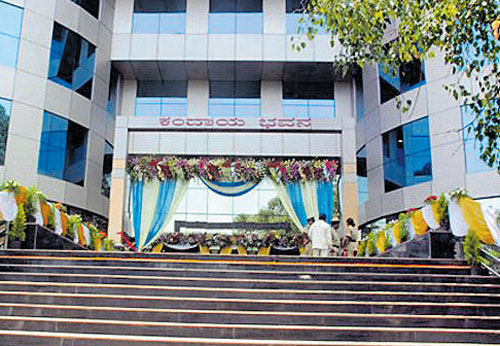Bengaluru, Aug 30: After a long wait and several delays, a special court for speedy trial of cases pertaining to land encroachments will finally be inaugurated in Bengaluru on Wednesday.

Speaking to reporters here on Monday, Law Minister T?B?Jayachandra said the special court will be headed by retired High Court judge Justice H N Narayana. Retired district judges Rayappa Hanumanthappa Reddy and B Balakrishna will be judicial members. A premises for the court has been provided on the third floor of Kandaya Bhavan on KG Road.
The orders for establishing the court was issued on March 22. Chairman and members of the special court have a three-year term. The court is set up as per the provisions of Karnataka Land Grabbing (Prohibition) Act, 2011 which provides for putting a curb on grabbing of government lands, including properties coming under Wakf or religious institutions, charitable endowments, local authorities or other statutory or non-statutory bodies owned, controlled or managed by government.
It has been a long journey for setting up of the special court. The Act which provides for setting up of the special court was passed by the state legislature in 2011. However, the bill was returned by the President, seeking clarifications. Then, there was a delay in finalising the location and staff for the court.
The special court has state-wide civil and criminal jurisdiction to complete trials within six months. Under the Act, punishment for land grabbing, is imprisonment not less than one year and up to three years and fine up to Rs 25,000.
Lake encroachments
A report being prepared by a legislature committee constituted to study lake encroachments in and around Bengaluru will be encyclopediac in nature and comprehensive, panel chairman K?B?Koliwad said on Monday.
Speaking to reporters in Bengaluru, Koliwad, who is also the Speaker of the Legislative Assembly, said the report which will be submitted by October end is likely to run into around 8,000 pages. Details of the quantum of encroachment of each of the 1,545 lakes surveyed in Bengaluru Urban and Rural districts will be included in the report. It was left to the government to implement the recommendations, he said.
Koliwad said the government had done the right thing by taking up demolition and eviction drive to clear encroachments. The Speaker said he had directed Bruhat Bengaluru Mahanagara Palike officials several months ago to clear encroachment on rajakaluves to prevent floods and water logging. “Bengaluru should not become like Chennai when it rains”, he said referring to the floods in the Tamil Nadu capital last year. However, his directions were ignored then, Koliwad added.





Comments
Add new comment